In the outsourcing industry, it’s rare for a person to stay with the same client long-term. The industry has an overwhelmingly high attrition rate due to the fast-paced nature of the business coupled with the off-balanced HR-to-staff ratio. The more employees a business has the higher the attrition rate.
Businesses with up to 1,000 employees had an attrition rate of 34%, and at 5,000 employees, this rate increased to 50%. In rare cases, certain clients create the perfect environment for staff with similar views and goals to thrive, leading to staff loyalty and a long-term employee.
To get a better viewpoint on the ideal case of working with a client long-term in the world of outsourcing, I sat down with someone well-versed in the topic. Carla has been working in the outsourcing industry for several years and has worked with her current client for the past 6 years.
She provides valuable insight as someone who has worked with numerous clients in the past and established a great working relationship with her present one.

Iohan: Good morning, how are you today?
Carla: I’m okay, not too busy today, so I can answer your questions.
Iohan: Sweet, so a bit of background for the audience, can you give me a short introduction and talk about what you do?
Carla: My name is Carla – I am 45 years old, and I have been with my current client for 6 years now. I am their first and best virtual assistant. I work as the Chief Operating Officer’s assistant.
Iohan: So before that, what were you doing?
Carla: Before this job, I was a Team Manager at Cyber City Teleservices Ltd here in Clark for 16 years. I handled US accounts and was the Customer Service Team Manager. I was in charge of 25 people.
Iohan: Geez, no recruiter is ever going to say you’re a “hopper.” You seem very loyal and committed to whatever employer you’ve been with. What made you leave and take the job you have now?
Carla: Well, I don’t like hopping from one company to another – that’s not my cup of tea. I actually didn’t leave CCT voluntarily, it was bought out by a different company and they reduced staff.
So, in short, I was fired due to redundancies. I always thought of CCT as a 2nd home for me. I was still very grateful for the opportunity. It taught me a lot, you know, from people skills down to the last skills I know.
Iohan: So it’s safe to say if you weren’t let go, you’d still be with them?
Carla: That is actually what I was telling my friends, if I weren’t let go, I’d still work for the same company, and I would have never met them.
Iohan: Can you tell me about your current employer?
Carla: My current client? It’s pretty different from what I’ve done while I was still in the call center industry, there is more interaction between the client and the staff. My client currently has 42 offices, which by the way, I am looking after. I have learned quite a few things regarding the real estate industry, auctions, as well as selling and leasing property.
Iohan: How did you find your current employer, just a random job ad or were you referred?
Carla: Neither. Believe it or not, I wasn’t even interviewed by my client. When I was hired, I actually thought a different client chose me, but I was quickly informed that I would be working for my current client and the rest is history.
Iohan: Wait, hold on, you were just hired on the spot?
Carla: Well, I did send out my resume, it was impressive due to all my prior work experiences.
Iohan: So you really didn’t do an interview at all?
Carla: Nope. I came into the office one day, and they gave me a desk, turned on a PC, and told me to sit. Little did I know I was already starting.
Iohan: That’s a first for me. I guess someone really liked your resume. So 6 years with your current employer, it seems like you are loyal to them, are they loyal to you? What I mean is, do you feel like you’re part of the team, like you’ve been integrated properly, and are actually included in the company culture?
Carla: Truth be told, when I started working here, I realized working as a call center agent, specifically, a Team Manager is somewhat of a “Thankless Job”. You don’t really hear words of appreciation.
The atmosphere was completely different when I started to work here (current employer). I felt appreciated by the smallest gestures, like getting assistance, especially when it came to technical matters.
You know, this actually inspired me to go the extra mile for them, even if it’s not in my JD, I’d do it. And there was positive feedback, so it was clear that they really did appreciate my efforts. During the pandemic, I was actually a little worried because I knew they could let me go anytime, but they didn’t. So yeah, I can say they are loyal to me.
Let me clarify when I said it’s a “Thankless Job.” I said it because you don’t hear the words “Thank you” every day. Day in and day out, you just sit there and do your job as you are being yelled at by others. That type of environment gets to you eventually. It wears you down mentally.
Iohan: So it’s safe to say the culture at your current job is healthy and rewards employees for being loyal?
Carla: Yes, definitely.
Iohan: Is this because you’ve stayed long and proved your worth, or do they treat everyone like this?
Carla: They treat everyone fairly and equally. They actually recognize people’s hard work. We held our 22nd Annual Awards ceremony on August 18, where they recognized employees and specific offices for their hard work. They also held an auction for the heartkids community in Victoria, so I was a part of their CSR program.
Iohan: So they stay true to their company values and give back to the community. Is your longevity with the company mainly attributed to your personal values or the company’s?
Carla: I honestly think it’s a combination of both. My employer has core values that I find to be compatible with my work values and ethics. If the two didn’t line up and all the effort was coming from one party, I don’t think it would work either.
Iohan: So the loyalty and trust is mutual, is there anything that sets them apart from other clients?
Carla: In terms of what?
Iohan: I guess I meant to ask what they do differently to keep employees. Clearly you’re a success story as most people in this industry don’t stay with their clients very long. At least not when I was a recruiter looking over resumes every day.
Carla: The recognition of your work – they give importance to the effort being put on the table, and this isn’t just during the annual awards but every day. We also have monthly awards that motivate all employees, whether or not they work in the office.
Also, learning is continuous. We have monthly training with different industry professionals for the continuous growth of the staff.
Iohan: Can you summarize what it’s been like working with a company like yours? Mostly positive? I know you mentioned it’s a more emotionally healthy environment, but could you get into that a bit more?
Carla: There will always be pros and cons to working with a client long term. You can have more free time, that we call chair spin days, basically days where you finish work early and have time to breathe.
A stable revenue stream. You work for the client long term, you’re compensated well. I get paid well annually, plus my performance bonuses.
Association, I think this one is kind of a strong word. You don’t talk about your clients, they talk about you. So word gets around that you have a good work ethic and how you meet their expectations. You basically become the go to person for your specialty.
Specialization. Over the years, you will become very familiar with unique issues. Once you’re seen as an expert in the field, they will ask you for your opinion or your help, and they also provide you with training in order to help you become the expert they need.
A con would be that you sometimes feel that you are too familiar with your work and it becomes redundant. Another con would be that people think that you know how to do everything and many people will go to you to solve a problem that you know nothing about.
The last con involves when people feel that they can give you orders that take precedence over your primary tasks. It’s frustrating when you’re trying to finish a report and someone expects you to stop what you’re doing and help them. These tasks also end up being time-consuming in nature, especially if you’re meant to collaborate with another party.
Iohan: So, any more benefits you’d like to share before we wrap up? I’m assuming there’s a plethora of benefits that you’ve acquired over the years because you’ve been there for 6 years.
Carla: I think it’s not just exclusive to my client, as there were benefits with the previous company I have worked with. The biggest intangible benefit is the trust that I built with the client – trust is the basic foundation of your relationship with the client, and without it, not much gets done.
Iohan: Do you have any tips for people who want to work long-term for a client?
Carla: Build a strong foundation of integrity and trust. These dudes work together. Be accountable for your actions and open your mind with constructive criticism.
The Wrap Up
Being able to work for a client for an extended period of time depends on both the employer and the employee. If both the employer and employee see eye to eye on several items such as goals, morals, and work ethic, then chances are low of that person leaving said job.
Employee engagement is also a critical point for employers trying to keep staff. Being present and showing that you care about your staff is important. The little things like recognizing and rewarding good work goes a long way in terms of retention.
A drawback to long-term clients would be the days when the work gets stale. Employee growth is important and is a remedy to this. Continuous training allows staff to learn new skills and vary their day-to-day tasks as they can use what they learned to take on new tasks and grow professionally.
The benefits of working long-term with a client is the relationship you build with them, the career growth you’ll experience, and the compensation will be worth it.
Working long-term with a client is about finding the right place. The relationship has to be beneficial both ways and having aligning views helps that immensely.





